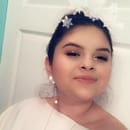There is this unsettling image of how a black person is perceived to act, talk, dress and the way they present themselves. Sadly this image is based on racial stereotypes and unfortunately, some people in the black community have fallen victim to it.
I grew up in Ladera Heights, a popular, predominantly black community on the Westside of Los Angeles. However, at the age of 5, my mom enrolled me and my siblings into the Pacific Palisades school system which is a predominantly white neighborhood. I stayed within that school district from 1st grade until I graduated high school.
At Palisades Elementary there weren’t many black or brown kids during my time at the school so most of my friends there were white, and I guess naturally I developed “white behaviors.” All of my black friends, as well as my family, sounded and acted like me. I didn’t believe the way I spoke was abnormal or the way I conducted myself as anything but myself.
When I got to middle school it was something like a culture shock I was labeled “whitewashed” and “oreo” because I talked “like a white girl.” For the longest time, I didn’t understand what that meant. The irony of it all was I was “too black” for my white friends and “too white” for my black friends.
I hated being labeled white-washed, and not for the obvious reasons of it being derogatory, but for the simple fact that it implied that only white people could be viewed as educated or intelligent based off their dialect. Because what does talking black mean? I’m sure the answer will be an offensive, racist one that not one person in the black community would agree with.
“My tow-truck driver asked me ‘you’re not from here are you?’ and I responded ‘yes I am,’ he followed with ‘oh you sound white’ I didn’t really have a response and I assume he took my silence as me being confused or uncomfortable, so he added ‘I just mean you sound educated,’” Alyssa Downer, 19.
Her driver was a black man.
We as black people are some of the most intelligent, powerful people on this earth, and for generations, we have been torn down to think less of ourselves. This absurd belief that our intelligence can be determined by our dialect and or our is simply unfair.
As a community, we have come so far. We do ourselves a disservice when we believe and feed into the negative storyline that was written for us. We can’t continue to let this narrative run. We are the change and we have the power to change.



